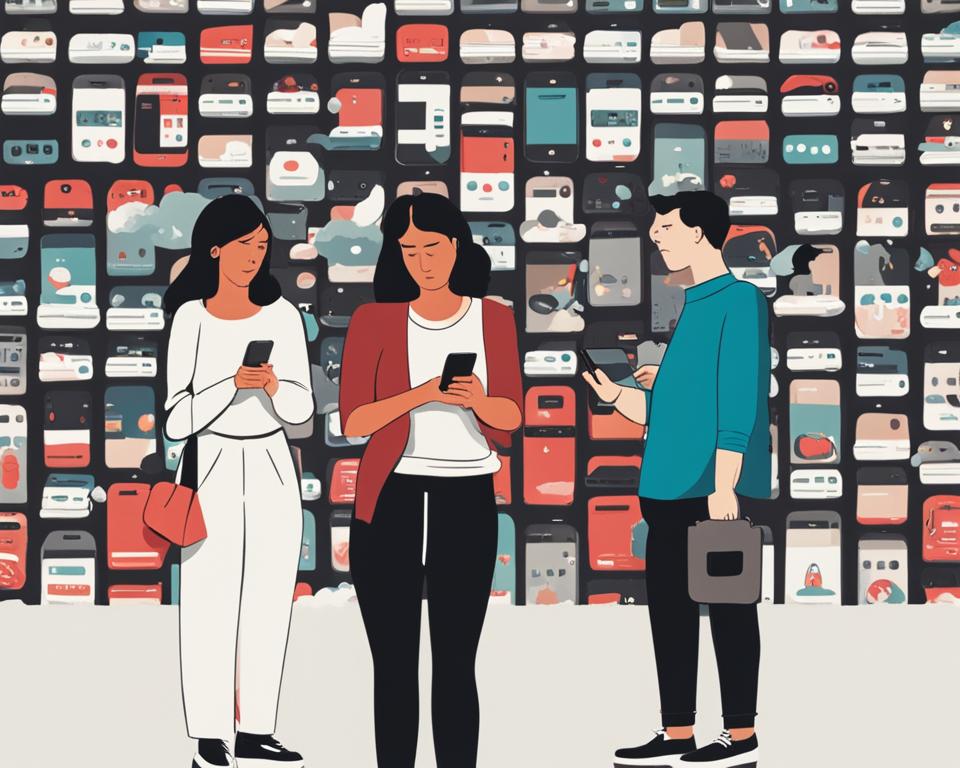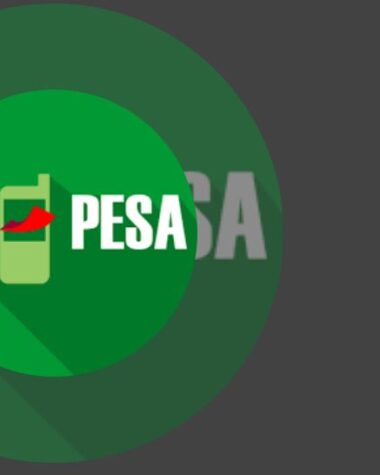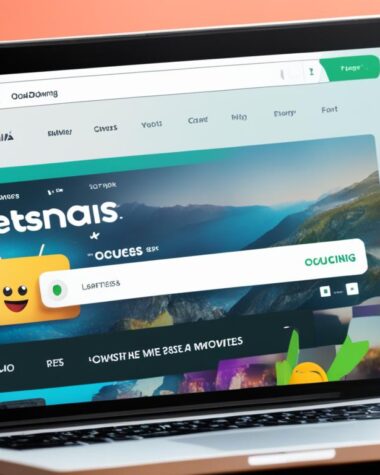Did you know that the average person spends over two hours per day on social media platforms?
Social media has become an integral part of our daily lives, transforming the way we connect and share information. However, behind the glossy facade, there’s a darker reality that many of us are unaware of. Social media platforms have turned our attention into a valuable commodity, exploiting it for profit through manipulative algorithms and addictive features.
Imagine the power of an industry built around the online attention economy, where every click and scroll is carefully engineered to keep us hooked. The profit-driven algorithms of social media platforms are designed to capture and monetize our attention, often at the expense of our well-being and privacy.
As we delve deeper into the dark side of social media, we’ll explore the constant need for validation, the perils of social comparison, the spread of misinformation, the toll on mental health, privacy concerns, and the influence of tech giants. It’s time to uncover the truth behind these platforms and understand the impact they have on our lives.
Key Takeaways:
- Social media platforms exploit our attention for profit through manipulative algorithms.
- The constant need for validation on social media can negatively impact self-esteem and mental health.
- Social comparison fueled by curated content can lead to feelings of envy, inadequacy, and diminished self-worth.
- Misinformation spreads rapidly on social media, affecting trust and real-world consequences.
- Excessive social media use can contribute to anxiety, depression, and low self-esteem.
The Constant Need for Validation
Social media has transformed the way we seek validation. In today’s digital age, it seems like external affirmation has become a constant necessity. We crave the satisfaction of seeing those likes, comments, and followers accumulate. But at what cost?
This incessant need for validation can take a toll on our self-esteem and mental health. We become trapped in a never-ending cycle of seeking external affirmation to feel good about ourselves. The validation loop becomes all-consuming, leaving us feeling inadequate, self-doubting, and anxious.
But here’s the funny thing: social media metrics don’t define our worth. The number of likes or followers we have doesn’t determine our value as individuals. It’s crucial to remind ourselves of this truth and cultivate self-acceptance.
“Likes don’t define me. I define me.”
Setting realistic expectations is key. We need to stop comparing ourselves to the highlight reels of others and embrace our own journey. Remember, social media is a curated presentation of people’s lives, often only showcasing the best moments. It’s not a fair representation of reality.
“Comparison is the thief of joy.”
Break Free from the Validation Loop
To break free from the constant need for validation, we must prioritize our mental health and well-being. Here are practical steps we can take:
- Limit social media usage: Taking breaks from social media can help reduce dependency and allow us to focus on our own lives.
- Practice self-care: Engage in activities that make you feel good and build your self-esteem, such as exercise, hobbies, or spending time with loved ones.
- Cultivate self-acceptance: Embrace your uniqueness and recognize that your worth goes beyond social media metrics.
- Focus on real-life connections: Nurture relationships offline and prioritize meaningful interactions with those who truly care about you.
By seeking validation from within, we can break free from the validation loop and reclaim our self-worth.
Validation: How Much Is Enough?
It’s essential to reassess our relationship with validation. Instead of constantly seeking external affirmation, ask yourself, “How much is enough?” Challenge the belief that social media metrics determine your worth and focus on cultivating a healthy sense of self-esteem.
Remember, you are more than the number of likes on a post. Your value as an individual transcends the virtual world. Embrace your authentic self, celebrate your accomplishments, and find validation from within.
| Effects of Constant Need for Validation | Impact on Mental Health |
|---|---|
| Feelings of inadequacy | Increased anxiety |
| Self-doubt | Reduced self-esteem |
| Anxiety | Comparison-induced depression |
The Perils of Social Comparison
Oh, the joy of scrolling through social media, witnessing everyone’s seemingly perfect lives. The envy, the inadequacy, the sinking feeling of self-worth plummeting like a deflated balloon – it’s all part of the perils of social comparison.
Let’s face it, we’ve all been there. I see Karen basking on a pristine beach in Bali, while I’m stuck inside on a rainy day. My friend, Sam, is flaunting his new sports car, and here I am, driving my trusty old bike. Suddenly, my life feels lackluster at best.
But here’s the kicker – social media is a highlight reel. It’s smoke and mirrors, carefully crafted to appear flawless. Behind those picture-perfect posts, there are messy rooms, bad hair days, and moments of vulnerability that rarely make an appearance. So why do we fall into the comparison trap so easily?
Envy, my friend. Envy is a ruthless beast that sneaks up on us when we least expect it. It tempts us to compare our behind-the-scenes with someone else’s highlight reel. We forget that those snapshots of perfection are curated, filtered, and heavily edited glimpses into someone’s life.
“Comparison is the thief of joy.” – Theodore Roosevelt
When we constantly compare ourselves to others, our sense of self-worth takes a hit. We start questioning our own achievements, appearance, and overall value. It’s a dangerous game that can lead to a vicious cycle of self-doubt and dissatisfaction.
So, how can we break free from the shackles of social comparison? It begins with embracing authenticity and practicing gratitude. Instead of focusing on what we lack, let’s appreciate what we have – the little victories, the unique qualities that make us who we are.
The Power of Gratitude
Gratitude is like a magic elixir for the soul. When we shift our focus to gratitude, we cultivate a mindset of abundance rather than scarcity. It helps us acknowledge our blessings and be content with the path we’re on.
Take a moment each day to name three things you’re grateful for. It can be as simple as a warm cup of coffee, a supportive friend, or the beauty of a sunset. By acknowledging the good in our lives, we diminish the potency of comparison.
Crafting Your Social Media Feed
Social media feeds can be a double-edged sword. They can either uplift us or bring us down faster than a rideshare driver who took a wrong turn. That’s why it’s crucial to curate our feeds mindfully.
Unfollow accounts that evoke negative emotions or perpetuate unrealistic standards. Instead, follow individuals who champion authenticity and promote self-acceptance. Seek out content that emphasizes personal growth, mental health, and genuine connections.
Embracing Authenticity
We are all beautifully flawed human beings, and that’s what makes us unique. Rather than striving for perfection, let’s embrace our imperfections and share our real selves with the world.
When we show up authentically, we give others permission to do the same. Our vulnerabilities become a source of strength, reminding us that we are enough just as we are.
So, my friends, let’s break free from the clutches of social comparison. Let’s celebrate our own journeys, honor our individuality, and build a world where our self-worth isn’t determined by likes or follows.
| Envy | Inadequacy | Self-Worth | Mental and Emotional Well-Being | |
|---|---|---|---|---|
| Definition | The feeling of discontent or resentment aroused by someone else’s possessions, qualities, or attributes. | A sense of not being good enough or capable compared to others. | The value we assign to ourselves based on our perceived worth and abilities. | The state of one’s psychological and emotional health. |
| Impact | Leads to feelings of bitterness, insecurity, and desire for what others have. | Erodes self-confidence and fosters self-doubt, leading to decreased motivation and satisfaction. | Affects overall self-esteem and can contribute to a diminished sense of self-worth. | Can result in increased anxiety, depression, and a negative outlook on life. |
| Strategies | Practice gratitude, focus on personal accomplishments, and limit exposure to triggering content. | Cultivate self-acceptance, set realistic expectations, and seek validation from within. | Explore personal values and strengths, practice self-compassion, and surround oneself with supportive relationships. | Prioritize self-care, practice mindfulness, and seek professional help if needed. |
The Spread of Misinformation
Social media platforms have become breeding grounds for the rapid dissemination of both accurate and inaccurate information. The spread of misinformation poses significant challenges in today’s digital landscape, with far-reaching consequences that impact individuals, communities, and society as a whole. In the era of fake news, maintaining credibility and promoting critical thinking skills have become more important than ever.
The ease and speed at which information spreads on social media can lead to confusion and mistrust. False narratives and conspiracy theories gain traction, influencing public opinion and shaping perceptions. The consequences of believing and sharing misinformation can be severe, including social unrest, political polarization, and even threats to public health and safety.
Combatting the spread of misinformation requires a multifaceted approach that empowers individuals to become critical consumers of information. Media literacy plays a crucial role in equipping people with the skills to evaluate sources, identify deceptive tactics, and discern fact from fiction. By advancing media literacy education, we can foster a society that values objective and verified information.
Verifying information before sharing is another vital step in combating the spread of misinformation. Fact-checking websites and independent journalism organizations play a pivotal role in debunking false claims and providing accurate information. By taking the time to verify information, we can avoid contributing to the viral spread of fake news and actively promote truthfulness and integrity.
Furthermore, diversifying news sources is essential to cultivate a well-rounded understanding of complex issues. Relying on a single news outlet can lead to echo chambers, reinforcing pre-existing beliefs and biases. Actively seeking out different perspectives and cross-referencing information from various sources can help us develop a more nuanced understanding of the world around us.
“In an age where misinformation can spread like wildfire, it is our responsibility to question, verify, and critically analyze the information we encounter before accepting it as truth.” – Anonymous
The Power of Critical Thinking
Critical thinking is a fundamental skill in navigating the digital landscape filled with misinformation. By questioning sensational headlines, examining the credibility of sources, and analyzing the evidence presented, we can strengthen our ability to discern fact from fiction. Critical thinking empowers us to think critically, independently, and objectively, promoting informed decision-making and a more reliable flow of information.
The Role of Media Literacy
Media literacy equips individuals with the tools to navigate the ever-evolving media landscape. By understanding how media messages are constructed, recognizing bias and manipulation techniques, and evaluating the credibility of sources, we become active participants in the information ecosystem. Media literacy fosters an informed citizenry that is less susceptible to the spread of misinformation and more equipped to separate facts from falsehoods.
| Impact of Misinformation | Ways to Combat Misinformation |
|---|---|
| 1. Undermines trust in media and institutions | 1. Verify information before sharing |
| 2. Fuels division and polarizes society | 2. Diversify news sources |
| 3. Influences public opinion and behavior | 3. Promote media literacy education |
| 4. Threatens public health and safety | 4. Encourage critical thinking skills |
The Toll on Mental Health
Social media’s constant exposure to curated content can have a detrimental effect on mental health. As we scroll through feeds filled with picture-perfect lives and highlight reels, it’s easy to compare ourselves and feel inadequate. The pressure to present an idealized version of ourselves can contribute to feelings of anxiety, depression, and low self-esteem. It’s like living in a never-ending popularity contest where we constantly question our worth.
But I’ve learned that there is a way to navigate social media’s impact on mental health. It starts with practicing self-care and setting boundaries. Instead of mindlessly consuming content, I prioritize dedicated time for activities that bring me joy and fulfillment. Whether it’s reading a book, going for a walk, or simply disconnecting from screens, I consciously take care of my mental well-being.
Additionally, promoting a healthy perspective on self-worth is crucial. I remind myself that social media is not a reflection of reality. It’s a carefully curated highlight reel that doesn’t capture the full story. By reminding myself of this, I can ground my self-esteem in more authentic sources, such as my accomplishments, relationships, and personal growth.
“Remember, you don’t have to prove your worth to anyone, especially not on social media. Your mental health should always come first.”
So, let’s take a moment to reflect on our relationship with social media. Let’s ask ourselves if the constant comparison and pressure for validation are truly worth sacrificing our mental well-being. By being mindful of the impact social media has on us, we can regain control and use these platforms in ways that uplift and inspire us.
Practical Strategies for a Healthy Online Experience
- Take social media breaks: Set designated times to disconnect from social media and focus on real-life experiences.
- Curate your feeds: Unfollow accounts that trigger negative emotions and follow accounts that promote positivity and self-acceptance.
- Engage authentically: Instead of seeking validation through likes and comments, prioritize building genuine connections with others.
- Practice self-compassion: Be kind to yourself, acknowledge your strengths, and celebrate your achievements without comparing them to others.
Remember, it’s crucial to prioritize your mental health over the superficial metrics of social media. You are more than the number of likes or followers you have. Your worth doesn’t depend on the validation of others or conforming to societal standards.
Privacy Concerns and Data Exploitation
Social media platforms have become a treasure trove of personal information, giving rise to legitimate data privacy concerns. As we share our lives online, we unknowingly expose ourselves to potential exploitation, targeted advertising, and user surveillance. The ramifications of this are vast, disturbing, and warrant immediate attention.
Imagine scrolling through your favorite social media platform, laughing at hilarious memes, and getting lost in the lives of others. Little do you know that behind the scenes, your personal information is being harvested and analyzed to serve targeted ads. It’s as if Big Brother is watching our every move, tracking our interests, and monetizing our data.
Now, don’t get me wrong. I’m all for companies making a profit, but when it comes at the expense of our privacy, it becomes problematic. We unwittingly become the product, and our personal information is the currency that greases the wheels of lucrative targeted advertising.
While some may argue that targeted advertising brings products and services that align with our interests, it’s essential to recognize the fine line between convenience and intrusion. When an ad for that pair of sneakers you recently Googled follows you around the web, it’s not just a coincidence. It’s a manifestation of the data-driven ecosystem we live in, where advertisers compete for our attention based on our personal preferences.
“I never signed up to be constantly bombarded with ads that know more about me than I do.”
So how do we protect ourselves from this rampant data exploitation? It starts with understanding the privacy settings on social media platforms. Take the time to review and adjust these settings to ensure you’re comfortable with the level of information being shared.
Additionally, it’s crucial to use strong, unique passwords for all your social media accounts. This not only safeguards your personal information but also prevents unauthorized access to your data.
Remember, the information you choose to share online is like a pebble in a pond; the ripples it creates extend further than you can imagine. That harmless post about your favorite travel destination or the intimate details of a personal event can be acquired by third parties without your consent.
Educating ourselves is the first step:
- Be mindful of the personal information you share online.
- Think twice before connecting your social media accounts to third-party apps.
- Consider using privacy-focused browsers and search engines.
- Regularly review and delete unnecessary personal data from your social media accounts.
| Data Privacy Concerns: | Recommendations: |
|---|---|
| 1. Personal information vulnerability | Review privacy settings and limit the information shared. |
| 2. Targeted advertising | Use ad-blocking extensions and limit third-party app permissions. |
| 3. User surveillance | Regularly delete unnecessary personal data and use encrypted messaging apps. |
| 4. Data exploitation | Support privacy advocacy groups and demand transparent data policies. |
As users, we must demand stronger data protection measures from social media platforms. Companies need to prioritize our privacy rights over their bottom line and be transparent about how our data is being used.
By taking control of our privacy settings, educating ourselves about the risks, and pushing for stronger data protection measures, we can protect our personal information and reclaim our digital autonomy.
The Influence of Tech Giants
As I scroll through my social media feeds, it’s hard not to notice the pervasive influence of tech giants. These industry behemoths wield significant control over our online experiences, thanks to their ownership of popular social media platforms.
With their algorithmic prowess, tech giants shape what we see and engage with in our digital lives. They curate our feeds, creating echo chambers that reinforce certain narratives and perspectives. It’s a subtle but powerful form of control that contributes to the monopolistic nature of social media.
But with great power comes great responsibility, or so we hope. There is an increasing demand for ethical responsibility and transparency from these tech giants. Users are becoming more aware of the need to protect their autonomy and guard against the manipulation that can arise from algorithmic control.
“It’s not just about algorithms. It’s about the ethical responsibility that comes with them.”
As individuals, it is crucial for us to be aware of the sway these tech giants hold. By advocating for transparency, demanding ethical practices, and supporting regulations that promote fairness and user empowerment, we can make our voices heard.
It is high time that these tech giants prioritize the well-being and autonomy of their users over their profit-driven algorithms. Social media should be a space that fosters genuine connections, free expression, and positive engagement. Let’s hold them accountable and create a digital landscape that serves us, the users.
Table: The Influence of Tech Giants
| Influence | Implications |
|---|---|
| Algorithmic Control | Creation of echo chambers, reinforcement of specific narratives |
| Social Media Monopolies | Limited competition, diminished user choice |
| Ethical Responsibility | Demand for transparency and user autonomy |
Image:
Conclusion
The dark side of social media is a reality we cannot ignore. However, it doesn’t mean we should completely shy away from these platforms. It’s about adopting responsible social media use and maintaining a conscious online presence that safeguards our well-being.
As individuals, we need to cultivate self-awareness and understand the challenges that come with social media. By implementing strategies such as limiting screen time, identifying triggers, and practicing digital detox, we can navigate these platforms in a healthier manner.
Social media has the potential for positive impact when used consciously. It allows us to connect, share ideas, and build communities. But it’s up to each one of us to prioritize our well-being and contribute to creating a more authentic and supportive digital landscape.










